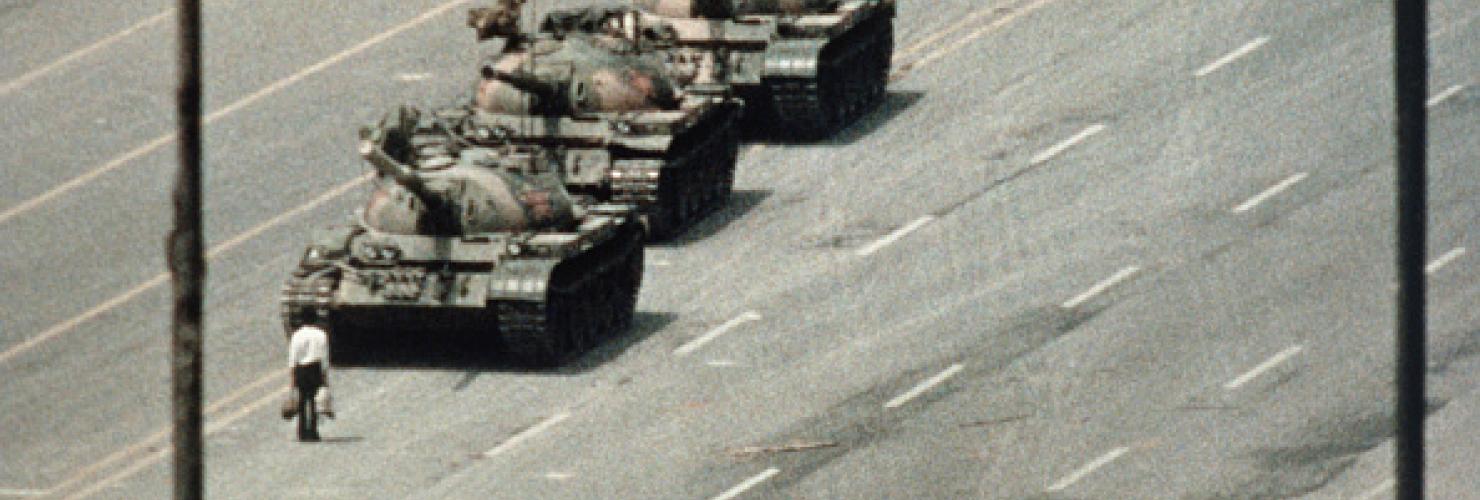

The great silence
Suppress and conceal: China is an emerging world power, yet it has still failed to find any other way of dealing with the legacy of the bloodily crushed protest movement of 1989.
Despite their old age and fragile state of health, the “Tiananmen Mothers” – women committed to keeping the memory of their murdered relatives alive and seeking a reappraisal of the events – are watched by police officers at every turn during the coming days. Other civil rights activists are accompanied on “trips” outside the capital. Anything that might appear suspicious to the censors - be it plastic ducks in “tank formation”, playing cards with the numbers 6-4-8-9, or just a simple candle – will be erased from the Internet.
None of this looks confident or worthy of a great power. But for the Chinese Communist Party, dealing with the protests of 1989 is not just a question of attitude, but of how to maintain its own power. By suppressing the peaceful demonstration, Beijing deprived itself of the confidence and commitment of its citizens. Since June 1989, the CCP made people believe that only one thing matters: that the government provides a steady increase in their prosperity, and, in addition, prestige for their country on the world stage. The entire nation is suffering from this political opportunism and moral decay caused by the turbo-capitalism Beijing has unleashed.
Dissatisfaction within China is mounting
At a time of growing economic crisis and escalating international conflicts, the only response from communist leadership seems to be to rush forward - economic and political decoupling, as it is called in the context of the trade conflict with the USA, and an aggressive "China First".
Within the country, however, the dissatisfaction has never calmed down. Workers are fighting for their rights and better wages, supported by students. Veterans are demanding better care, ripped-off consumers are demanding better quality and higher compensation. LGBT activists are protesting against uniformity and criminalisation, academics and teachers are beginning to break their self-imposed silence concerning surveillance and censorship. Meanwhile well-off entrepreneurs are getting themselves additionalpassports or greencards, , and moving their families and assets outside the country.
None of these forms of protest has currently the potential to endanger the rule of the CCP. A national protest movement like the one of 1989 is very unlikely at a time when the state has perfected high-tech surveillance, liberal democracies are looking less persuasive, and there is a good shot of relative comfort and prosperity. But these patches of discontent are a constant reminder to the government that its own people at best only tolerate them and have clear expectations of their leaders.
What does that mean for us?
China's supposed stability - which is often used in the West as reason to paint a rosy picture of Xi Jinping’s totalitarian regime - is no such thing. Increasing nationalism and an anti-Western mood fuelled by Beijing as a way out of a serious economic and geopolitical crisis is not a good choice for us either. To say – as not only the Chinese leadership do, but also some here in the West who claim to “understand” China – that the suppression of the protests was necessary in the end to keep the country stable, is not just cynical. It is also counterproductive for the sustainable development of constructive relations with the People's Republic.
Thirty years after the suppression of the protests in Tiananmen Square, there are two things we can do. The first is to bring our thinking about business and politics more closely together than before. Fair competition and open markets cannot be separated from independent representation of interests and the rule of law. China certainly does respond to clear messages in the area of human rights. Anticipatory obedience and embarrassing evasion, on the other hand, will be used by Beijing against us. More pressure needs to be applied to companies regarding humane and sustainable production and supply chains. But we also need to show more responsibility as consumers. Fairly produced goods cost more, but it costs nothing to look more closely and ask questions - just a little effort or inconvenience.
The second thing we can do is to listen more closely to the Chinese who are already working toward and hoping for a different China after Xi Jinping. We should be reading what they write in the Internet and seeking out conversations with them. A sweeping dismissal of their questions or their criticisms of our systems would be fatal. We must take these seriously, too. We must define red lines and communicate these to the communist leadership. However, this must not lead to a general anti-Chinese attitude.
If we fail to do these things, then we too partly carry the blame for Beijing's great silence about the Tiananmen dead.
This article was first published in German in "Süddeutsche Zeitung" on May 31, 2019.
